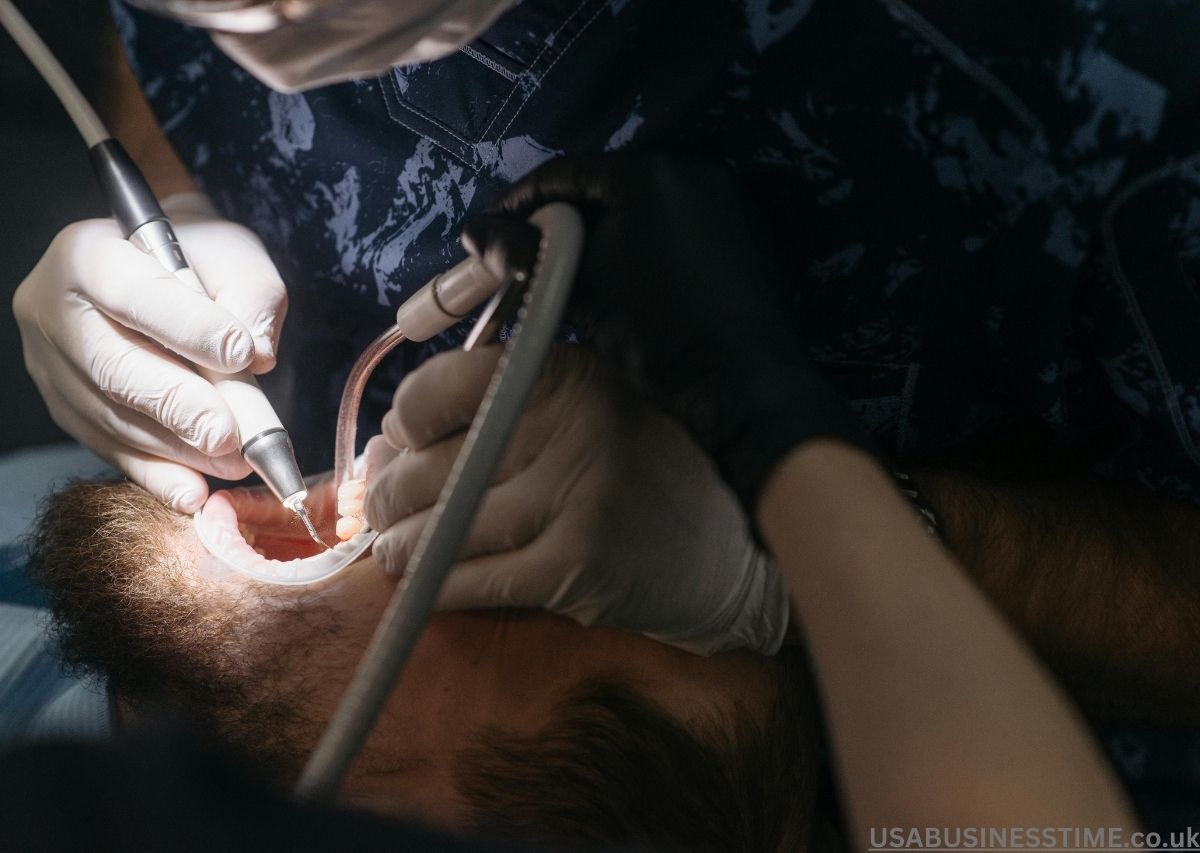Are you on the hunt for a new dentist? Perhaps you’ve recently moved to a new area or need to be happier with your current dental provider. Whatever the reason, finding a dentist accepting new patients can sometimes feel like searching for a needle in a haystack.
But fear not! In this blog post, we’ll walk you through everything you need to know about finding the perfect dentist who fits your needs and preferences. From understanding different types of dentists and their specialties to asking the right questions when researching potential candidates – we’ve got you covered.
The importance of finding a new dentist
Taking care of oral health is crucial for a happy and healthy life. Your dentist plays a vital role in this, as they are the professionals who ensure that your teeth and gums are in top-notch condition. But why is finding a new dentist so important? Regular dental check-ups and cleanings are necessary to prevent potential issues from escalating into major problems.
A new dentist can provide fresh insights into your oral health that your previous provider may have missed. They can offer different treatment options or techniques better suited to your needs. Additionally, if you’ve relocated to a new area, it’s essential to find a local dentist who understands the unique dental challenges or trends prevalent in the region.
Moreover, establishing trust with your dentist is vital for physical and mental well-being. A positive relationship with your dental professional allows you to openly discuss any concerns or fears about dental procedures – leading to more comfortable visits overall.
Finding a new dentist also opens up opportunities for second opinions on diagnoses or treatment plans. It never hurts to get another perspective on complex dental issues.
Finding a new dentist goes beyond just scheduling routine appointments; it ensures you receive personalized care tailored to meet your individual needs while maintaining optimal oral health.
Factors to consider when searching for a dentist accepting new patients
Several important factors must be considered when seeking a new dentist accepting new patients. Location is crucial. You’ll want to find a dental practice near your home or workplace, making it easy to schedule appointments without added stress or travel time.
Another factor to consider is the dental practitioner’s qualifications and experience. Choosing a dental practitioner with the credentials and expertise to provide quality dental care is essential. Look into their educational background, certifications, and any specialized training they have undergone.
Next, consider the office atmosphere and environment. A welcoming and comfortable setting can make a big difference in how you feel about visiting the dental practitioner regularly. Take note of factors like cleanliness, friendliness of staff members, modern equipment, and overall patient satisfaction.
Lastly, insurance coverage/payment options should be considered when choosing a new dental practitioner accepting new patients – especially if cost concerns you. Ensure that they get your dental insurance plan or offer flexible payment options so that receiving quality oral care doesn’t become burdensome financially.
Types of dentists and their specialties
When searching for a new dentist, it’s essential to understand the different types of dental practitioners and their specialties.
They provide routine exams, cleanings, fillings, and other essential dental treatments. They are often the first point of contact for patients seeking dental care.
You may need to see a specialist for more specialized dental needs. One example is an orthodontist specializing in straightening teeth and correcting bite issues using braces or aligners. Endodontists focus on root canal therapy and saving teeth with severe decay or infection.
Another specialty is periodontics, which treats gum diseases such as gingivitis or periodontitis. Oral surgeons perform complex procedures such as wisdom tooth extractions or jaw surgeries.
Prosthodontists specialize in restorative dental practitioners ry, including crowns, bridges, dentures, and implants to restore missing teeth.
Understanding these various specialties can help guide your search for a new dental practitioner who has the expertise to address any specific concerns you may have.
Remember that finding a dental practitioner with the right specialty isn’t just about addressing immediate concerns; it’s also about building a long-term relationship with someone who can support your ongoing oral health needs.
How to find a dentist who fits your needs and preferences
When looking for a new dentist, finding one who meets your dental needs and aligns with your preferences and values is essential. Here are some tips on how to find a dental practitioner who fits your needs and preferences.
Begin by getting referrals from friends, family, and coworkers. These personal referrals can provide valuable insights into the quality of care offered by dental practitioners in your area.
Are you looking for a general dentist who provides routine cleanings and check-ups? Or do you need more specialized care like cosmetic dentistry or orthodontics? Verify that the dentist of your choice offers the services you require.
Remember to account for any unique needs or requirements. For example, if you have dental anxiety or phobia, look for a dentist who specializes in treating fearful patients or offers sedation options.
It’s also crucial to research each potential dentist’s qualifications and experience. Look up their educational background, certifications, and reviews from other patients. This information will give you insight into their expertise and skill level.
Feel free to schedule consultations with several dentists before making a final decision. During these appointments, ask about their treatment philosophies and communication styles. It’s essential to feel comfortable discussing your oral health concerns openly with your chosen dentist.
By considering these factors when searching for a new dentist accepting new patients., you can ensure that they meet both your dental needs and personal preferences.
Questions to ask when researching potential dentists
When searching for a new dentist who accepts new patients, you must ask the right questions to find a professional who meets your needs and preferences. Here are some essential inquiries to consider when researching potential dentists:
1. What are their qualifications and experience?
Ensure the dentist has the credentials and training from an accredited dental school. Additionally, inquire about their years of experience in practicing dentistry.
2. Are they accepting new patients?
Confirm that the dentist is currently accepting new patients, as this will save you time and effort in your search.
3. What services do they offer?
Consider what dental services you require, such as routine cleanings, orthodontics, or cosmetic procedures. Ask if the dentist provides these specific treatments.
4. Do they accept your insurance?
If you have dental insurance coverage, it’s crucial to check whether the dentist accepts your plan or is willing to work with out-of-network providers.
5. How do they handle emergencies?
Inquire about how the dentist handles dental emergencies outside of regular office hours or during weekends so that you’re prepared for unforeseen situations.
6. Can they provide patient testimonials or references?
Ask if the dentist can provide testimonials from previous patients or references who can vouch for their quality of care and professionalism.
7. What precautions do they take regarding COVID-19 safety measures?
Given our current circumstances with COVID-19, it’s essential to ask about safety protocols implemented by the dental office to protect staff and patients during visits.
Remember that finding a new dentist is essential for your oral health care journey! When researching potential dentists, don’t hesitate to ask these critical questions before choosing.
Tips for making the transition to a new dentist
1. Gather your dental records: Before you make the switch, contact your current dentist and request a copy of your dental records. This will help ensure your new dentist has all the necessary information about your oral health history.
2. Research the new dentist’s policies: Familiarize yourself with the new dentist’s policies regarding appointments, insurance coverage, and payment options. Make sure they accept your insurance plan and offer convenient appointment times.
3. Schedule an initial consultation: Once you’ve chosen a potential new dentist, schedule an initial consultation to meet them in person. Use this opportunity to ask questions or address concerns about their practice.
4. Communicate openly: During your first visit with the new dentist, be open about any pre-existing conditions or specific dental needs you have. Clear communication will help establish trust and allow for personalized treatment plans.
5. Prepare relevant information: When visiting your new provider, bring any X-rays, scans, or recent test results from previous dental treatments. This will give them valuable insights into your oral health status and aid in creating an effective treatment plan tailored to your needs.
6. Give it time: Adjusting to a new healthcare provider can take time; don’t expect immediate familiarity or comfort during the first few visits with your new dentist. Allow yourself some patience as both you and the dental team get acquainted with each other.
Conclusion
As we wrap up our discussion on finding a new dentist who accepts new patients, it’s clear that this decision should not be taken lightly. Your dental health is crucial to your overall well-being, and having a trusted and reliable dentist by your side is essential.
We have explored the factors to consider when searching for a dentist accepting new patients, such as location, hours of operation, insurance acceptance, and reputation. We also discussed the different types of dentists and their specialties, from general dentistry to orthodontics and periodontics.
To find the perfect fit for your needs and preferences, it’s essential to do thorough research. Ask friends or family for recommendations or turn to online review platforms for feedback from other patients. Feel free to schedule consultations with potential dentists to get a feel for their practice.
During these consultations, ask questions about experience, treatment options, preventative care practices, emergency availability, and any concerns regarding oral health.
Once you’ve found the right dentist, the transition can feel overwhelming. However, remember that change can sometimes lead to positive outcomes. Communicate openly with your current dentist about your decision and request copies of your dental records before scheduling an initial appointment with the new practitioner.
FAQS
1: How important is it to find a dentist accepting new patients?
A: Finding a dentist who accepts new patients is crucial for maintaining good oral health. Regular dental check-ups and cleanings are essential for preventing and addressing dental issues before they become more serious.
2: What factors should I consider when searching for a dentist accepting new patients?
A: When looking for a dentist, consider their location, office hours, insurance acceptance, reputation, and the range of services they offer. It’s essential to choose someone who fits your needs and preferences.
3: What types of dentists specialize in different areas?
A: There are several types of specialized dentists, including general dentists who provide routine care, orthodontists who straighten teeth using braces or aligners, periodontists who focus on gum disease treatment, pediatric dentists specializing in children’s oral health, endodontists dealing with root canal therapy, oral surgeons performing complex surgeries like wisdom tooth extraction or dental implant placement.
4: How can I find a dentist that suits my needs?
A: Start by asking for recommendations from family members or friends. You can also search online directories or review platforms to read about other people’s experiences. Make sure the dentist accepts your insurance plan if you have one, and schedule an initial consultation to see if you feel comfortable with them.










